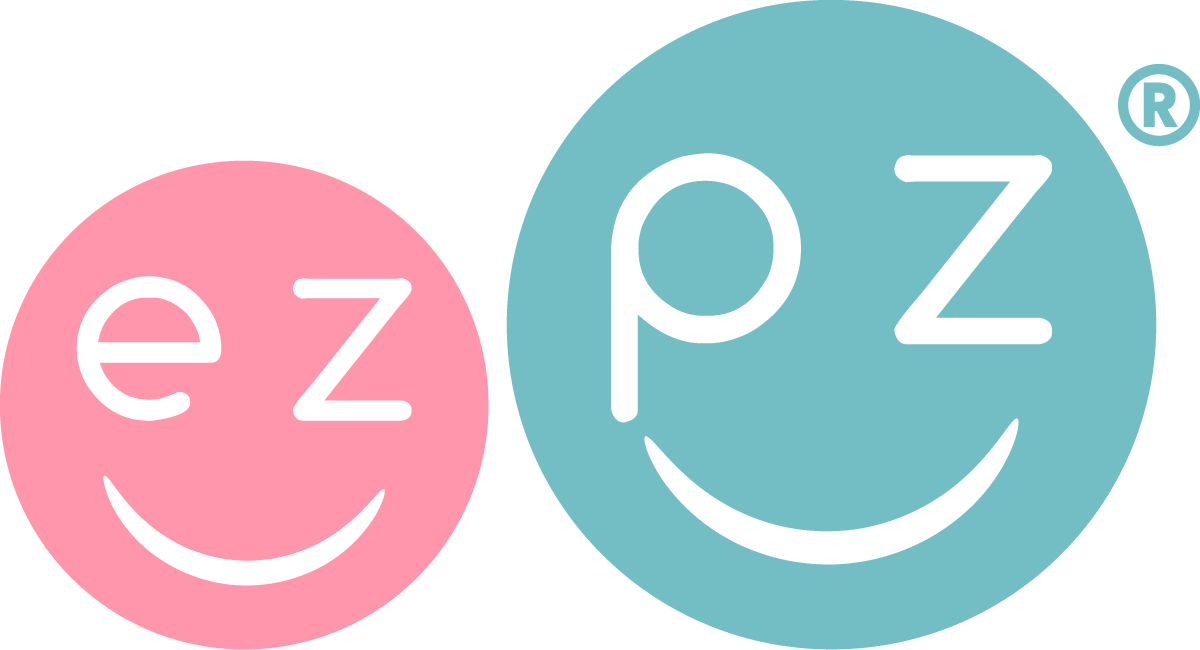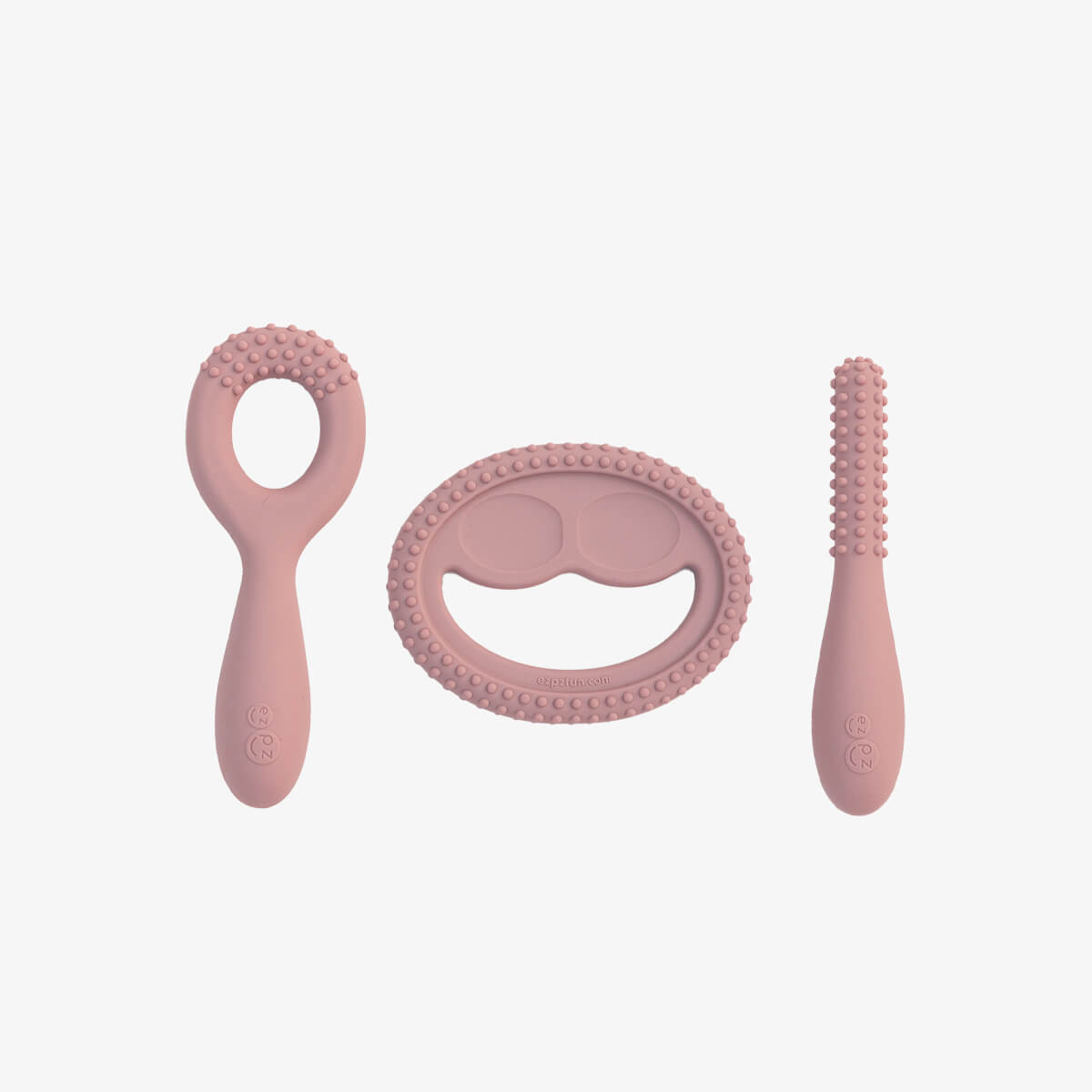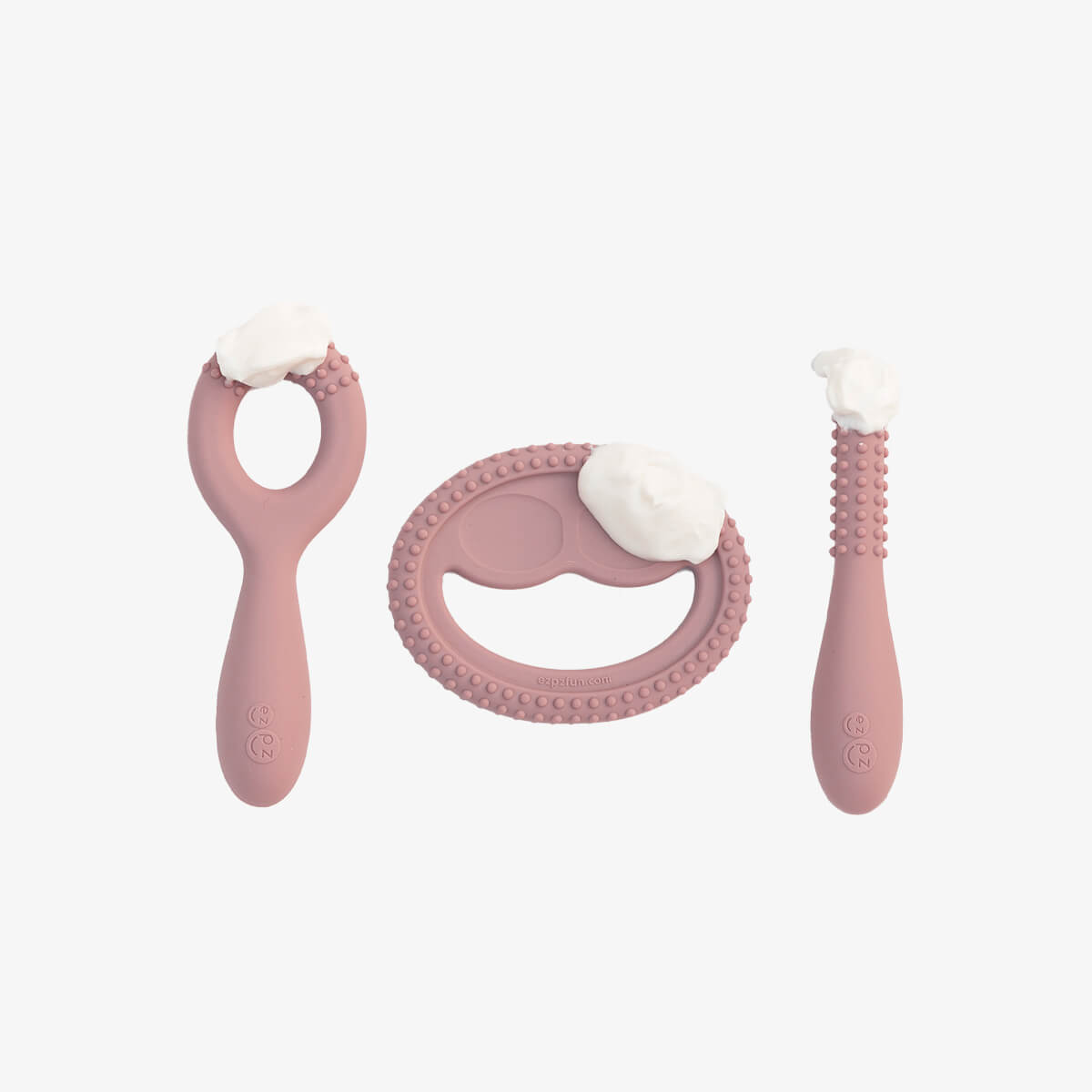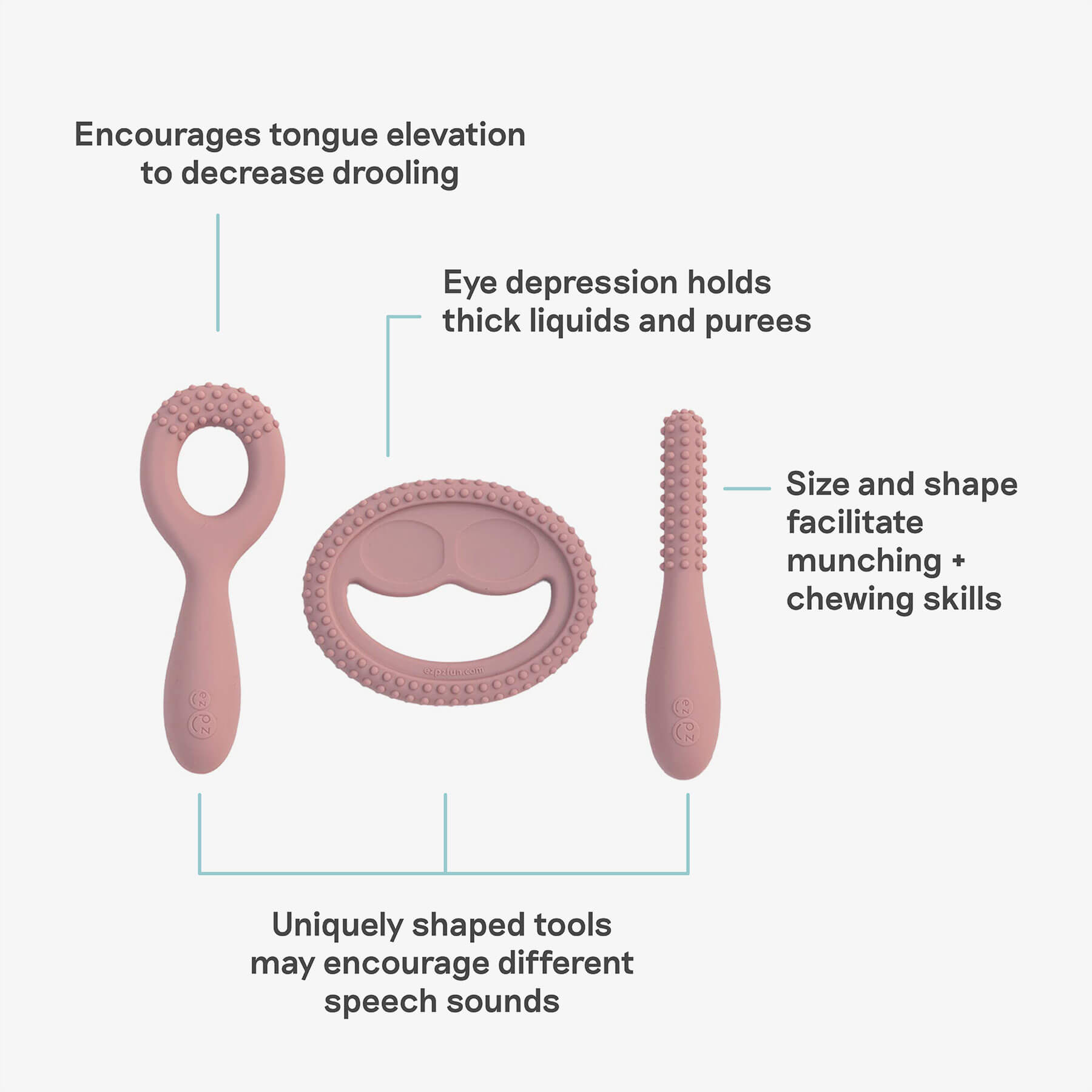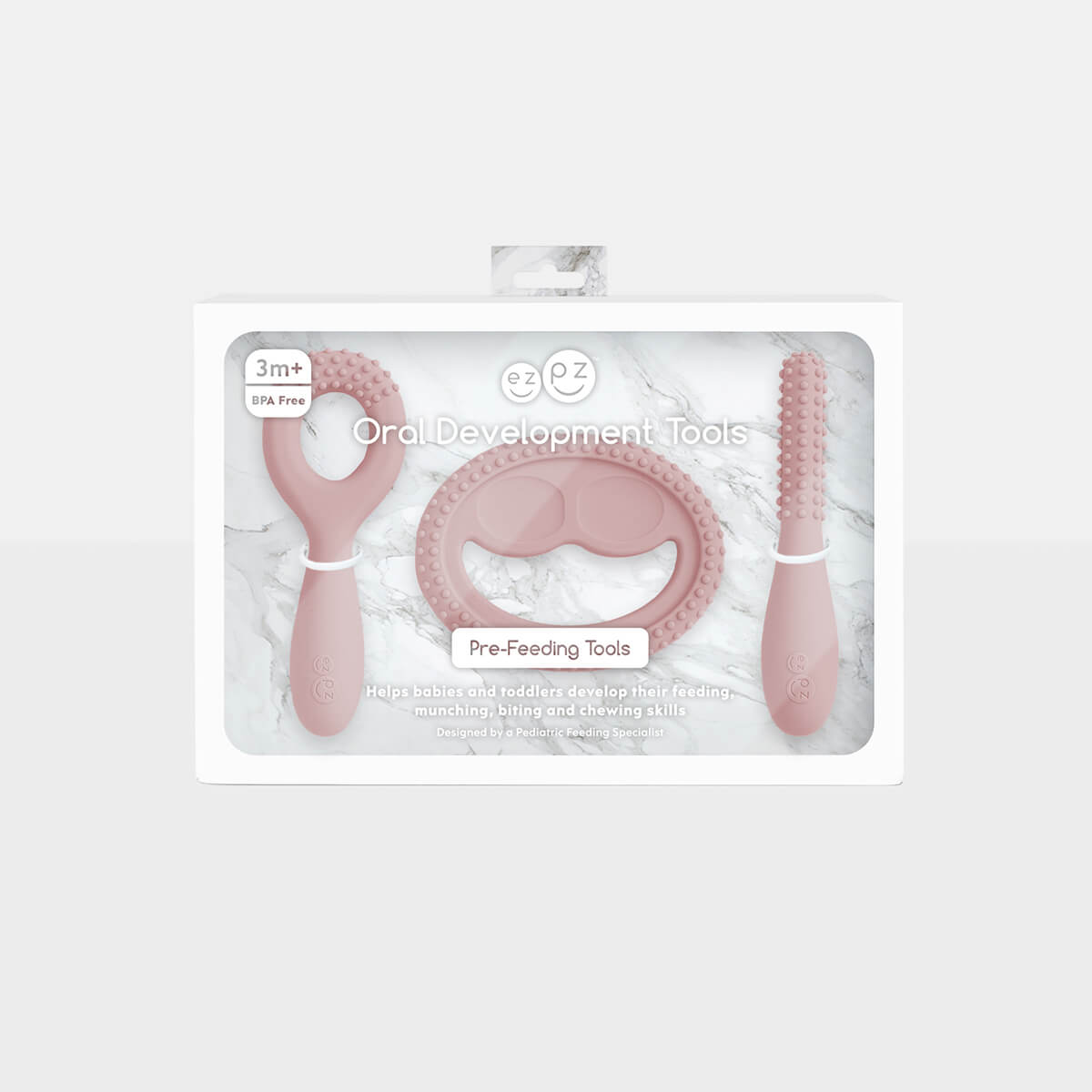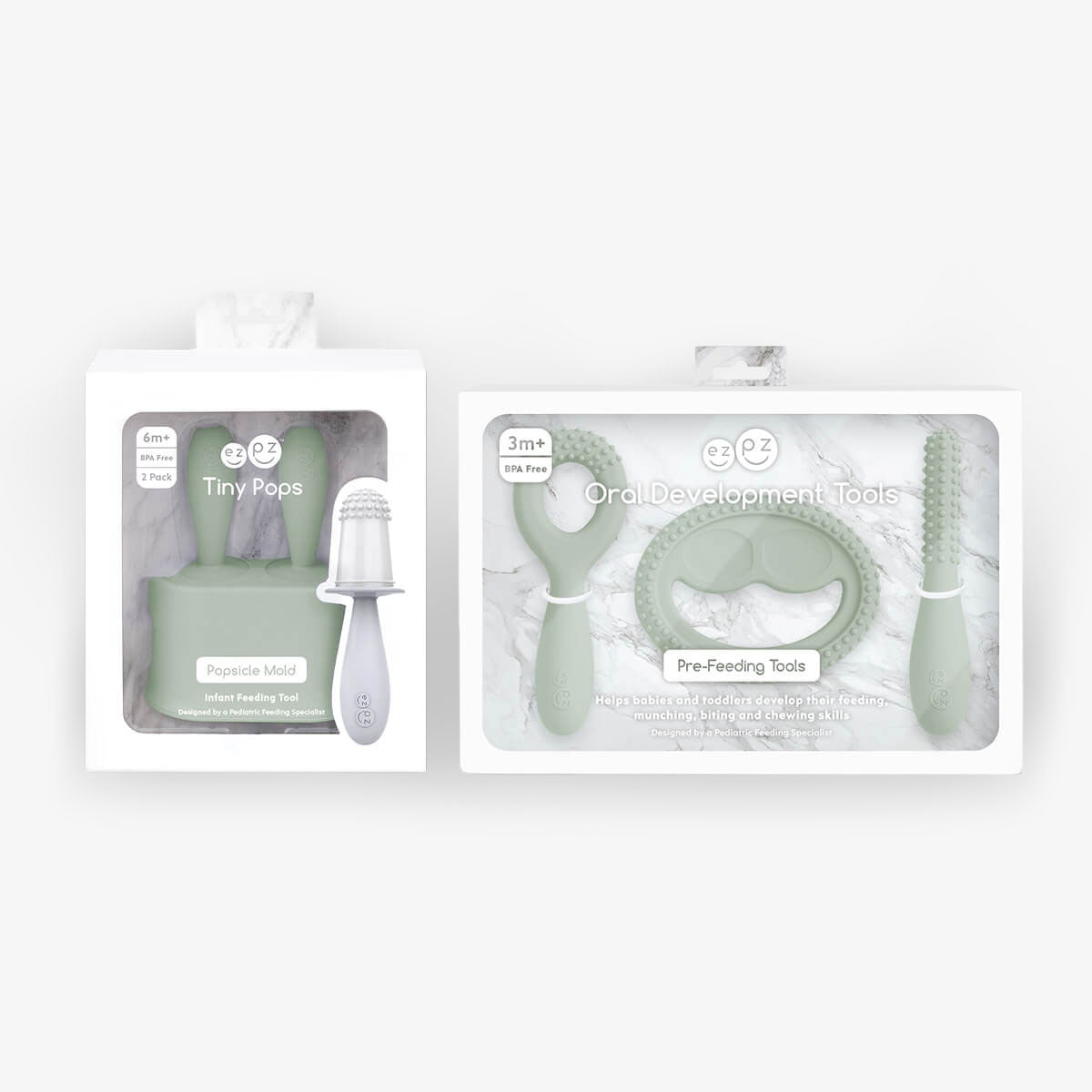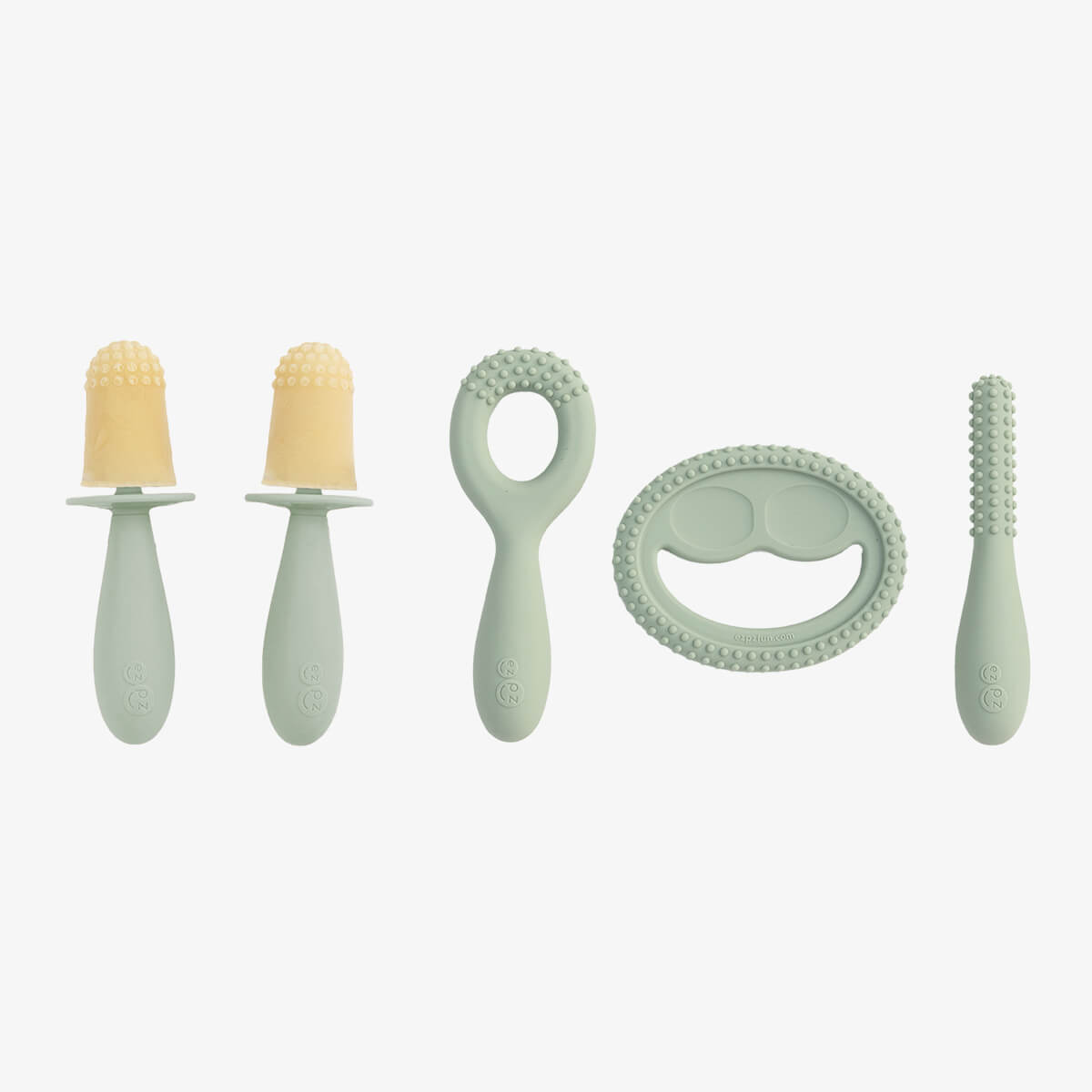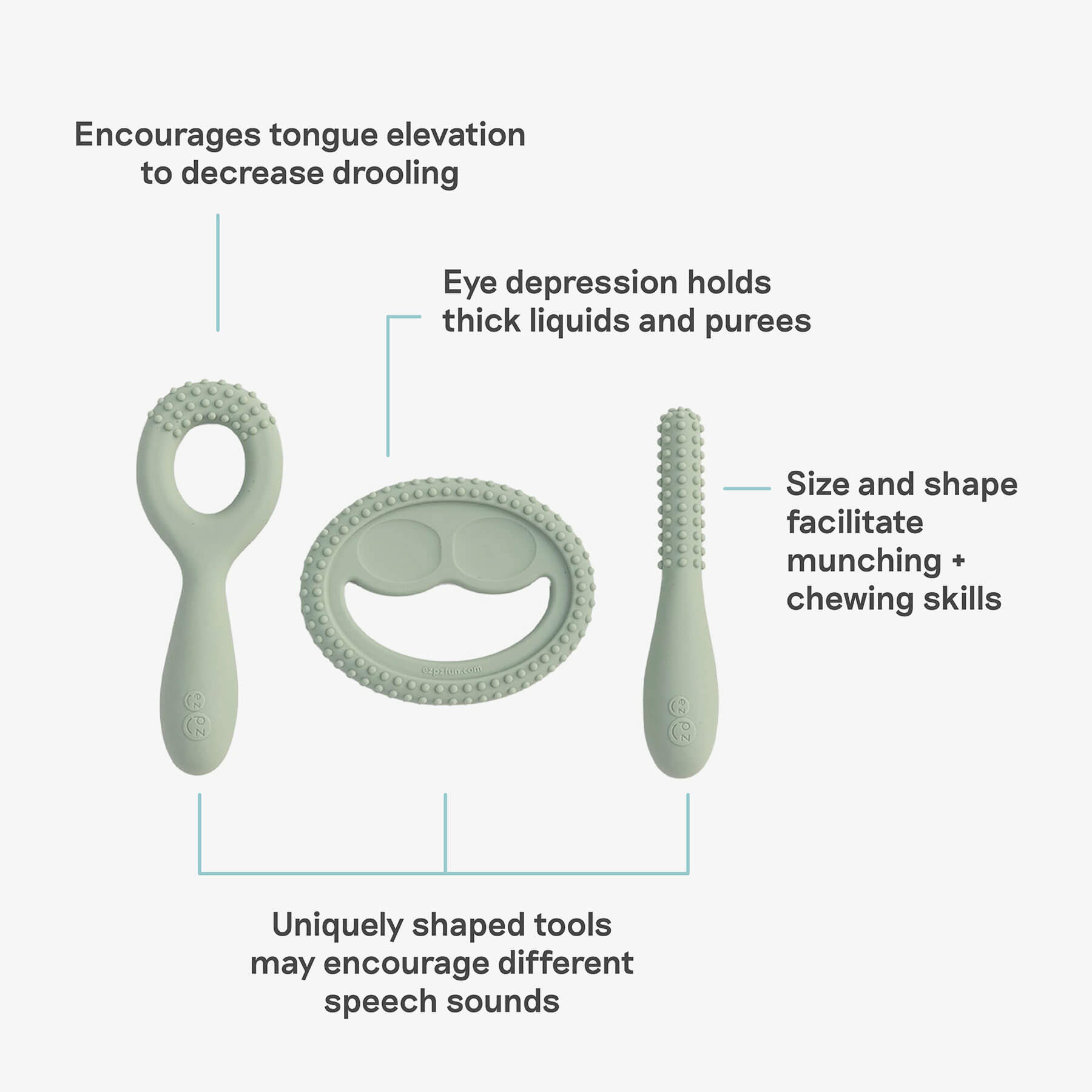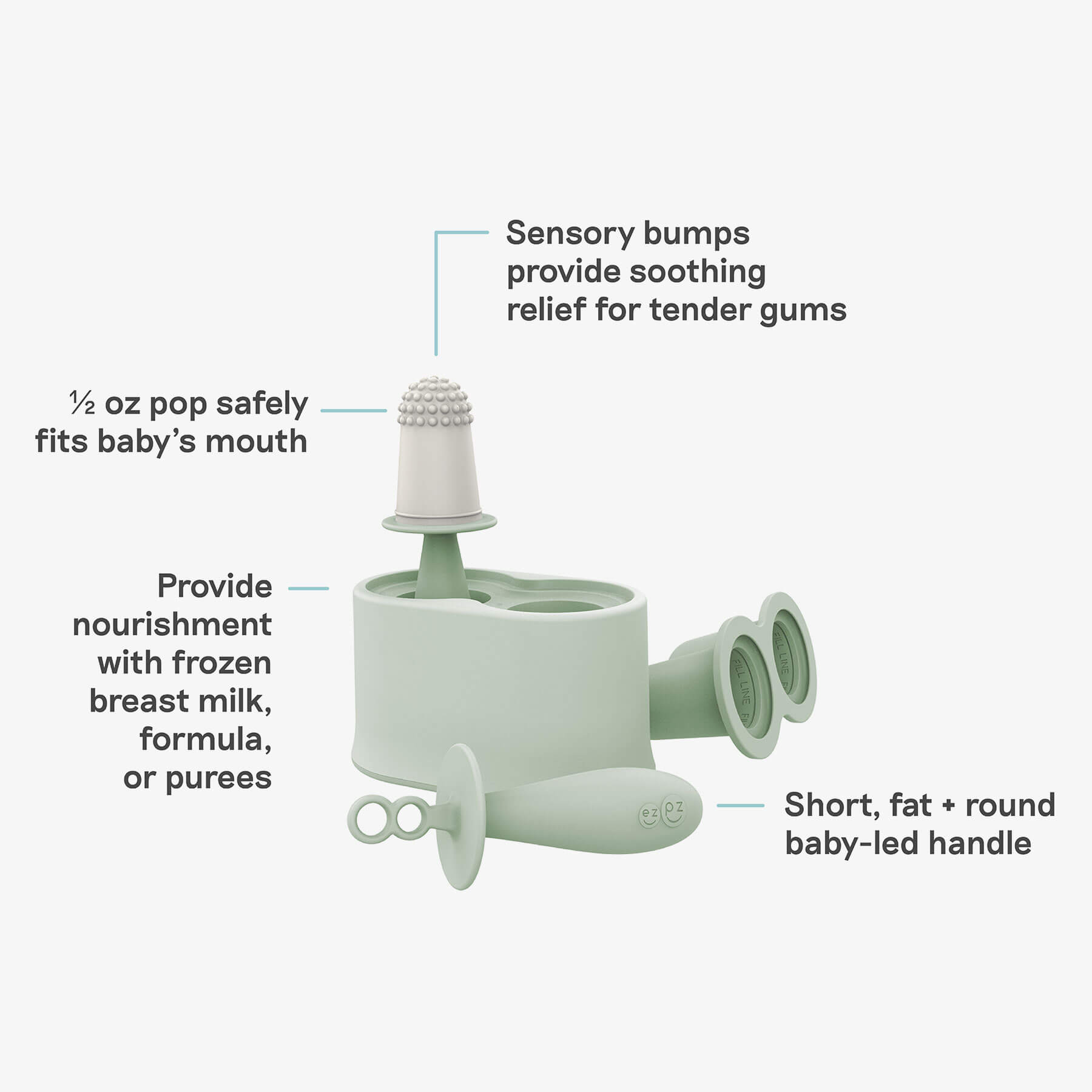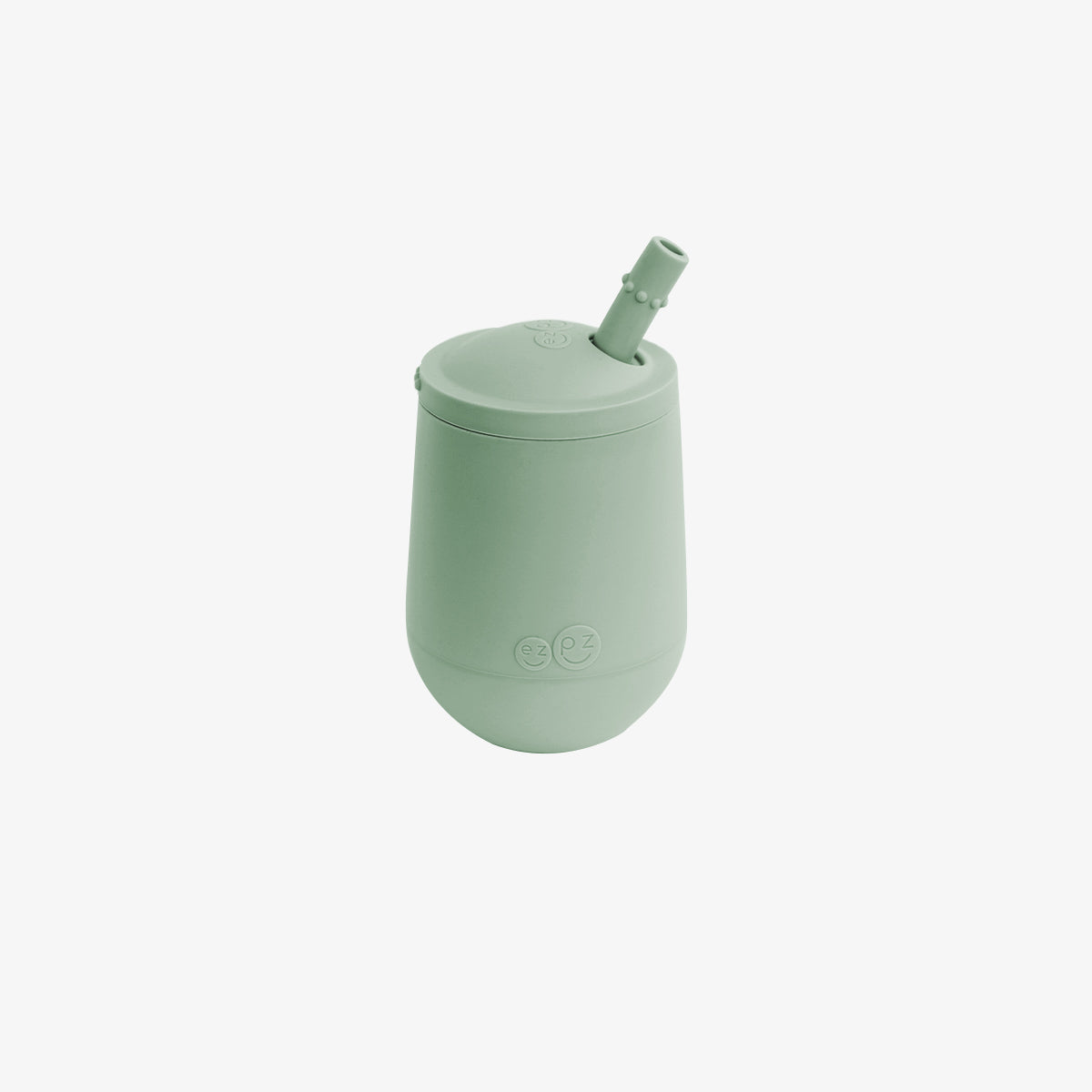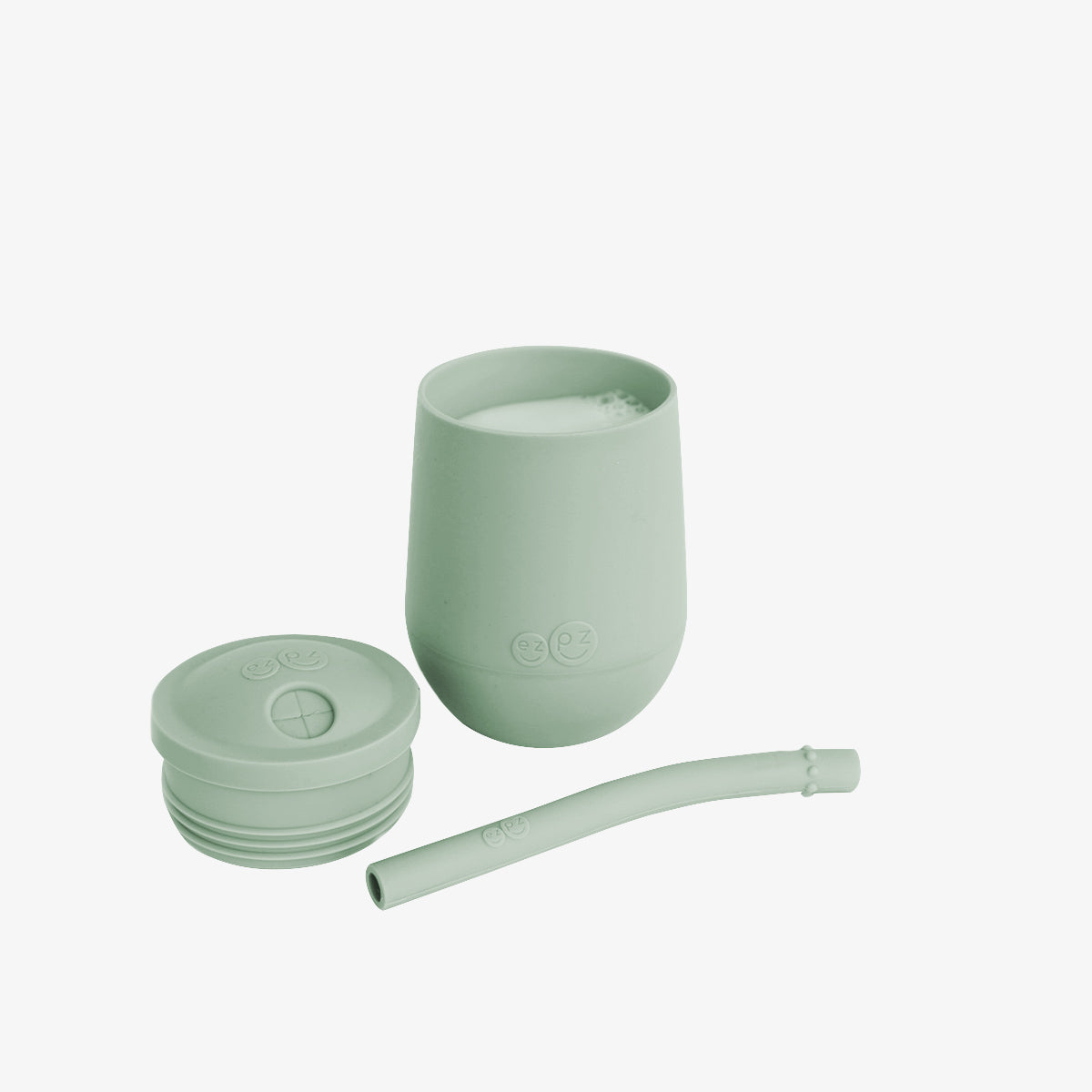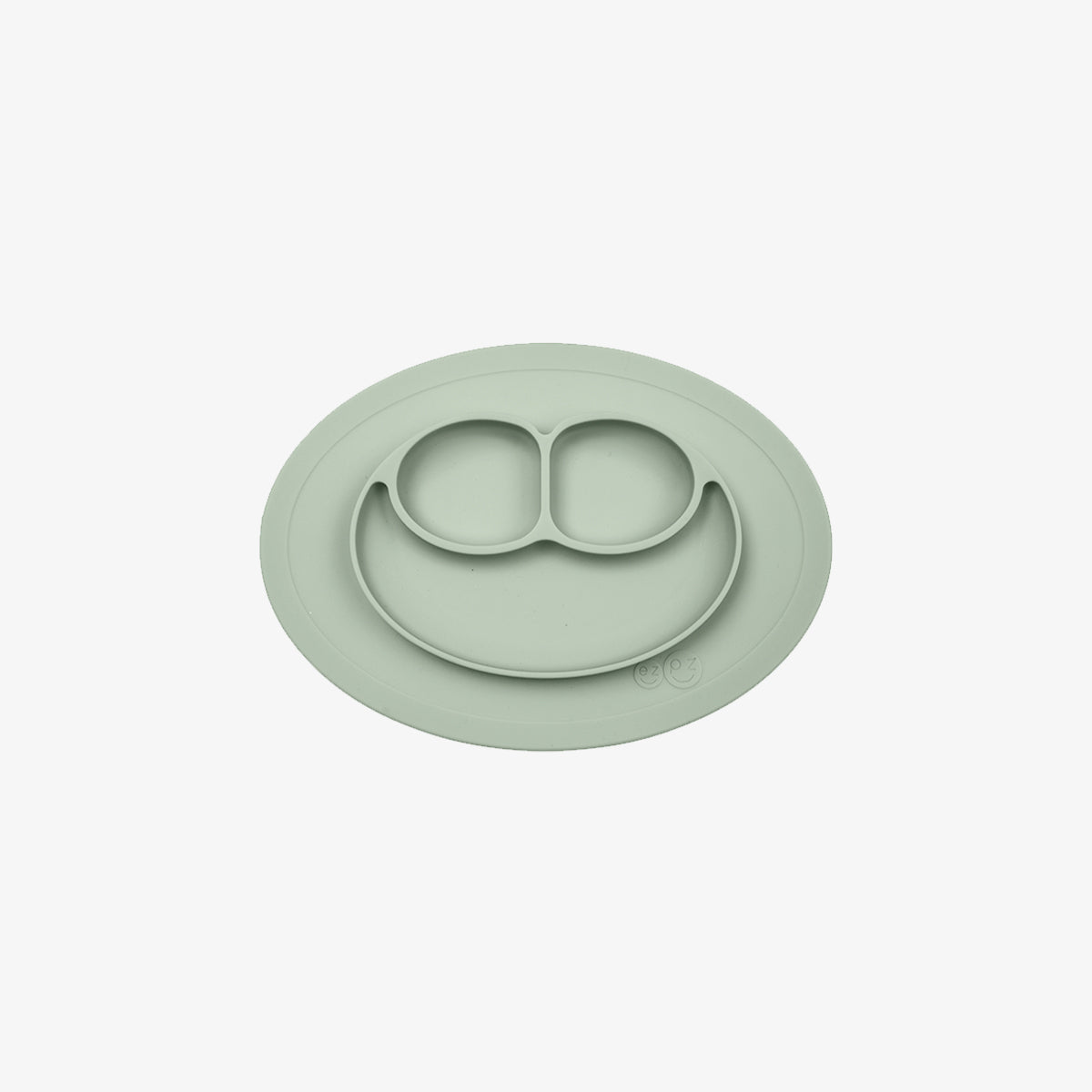A baby’s pre-feeding, feeding and swallowing skills begin with exploration and movement of their tongue. Thus, a tongue-tie may have a significant impact on a baby’s mouthing, eating, drinking and swallowing development. Here are a few tips for parents (+ product ideas) to help tongue-tied babies.
Pre-Feeding Skills: When babies are tongue-tied, they must learn different ways to move their mouth to comfort and feed themselves. Some babies can compensate and make new oral patterns, while others struggle with nursing, self-soothing, swallowing, feeding, speech and more.
- Parent Tip: Unfortunately, it is common for tongue-ties to go undiagnosed for several weeks, months and even years. I encourage parents to examine their baby’s mouth when awake, asleep and during self-soothing activities (such as sucking on a pacifier, exploring a teether, mouthing an oral development tool or munching on their hand). This information is critical when exploring surgical and therapeutic options with your medical team.
- Product Tip: When searching for a mouthing tool for your baby, look for tools that promote pre-feeding skills (e.g., tongue elevation, lip closure, tongue lateralization and munching). The Oral Development Tools are a great choice, as the set includes three sensorimotor tools that may help build the tone of your baby’s lips, tongue, cheeks, gumline and jaw.
Eating Skills: There is limited research when it comes to successfully starting solids with tongue tied infants. However, in my extensive clinical experience I find less regression and more progress with first foods when parents are educated in what to look for if they suspect a tongue-tie. If parents can quickly describe their feeding concerns to a competent medical professional (SLP, OT, IBCLC) and then obtain a diagnosis / treatment plan, we can reduce the risk of choking, aspiration and negative associations with mealtime.
-
Parent Tip: If you are suspicious of a tongue tie, look for these symptoms when starting solids.
- Overstuffing
- Excessive gagging
- Food refusal
- Spitting up food
- Difficulty with different temperatures
- Difficulty with textured foods
- Limited oral intake
- Weight loss
- Pocketing
- Product Tip: The portion sizes of the Mini Mat compartments are 2oz, 2oz and 4oz. These measurements make it easy for parents to quickly assess how much their baby consumes at each feeding time. This information can help your medical provider understand how much of a certain texture your baby is successful with, which can help to determine a treatment strategy (therapy and/or surgery).
Drinking Skills: Almost every baby I have ever worked with in feeding therapy with a tongue-tie diagnosis drank copious amounts of liquids in order to swallow their food. This is a common compensatory technique babies perform to help them safely manage solids. Making sure your baby has appropriate cup options is key for oral development and successful swallowing and drinking outcomes.
- Parent Tip: Many of the families I work with that have a baby with a tongue-tie share that their baby is only drinking successfully from a sippy cup or food pouch. Unfortunately, these options promote an open-mouth, relaxed lip posture, which may negatively affect a child’s breathing, dentition, sleep and speech development.
- Product Tip: A straw cup improves lip rounding, which is an essential movement for drinking and speech / language development. The Mini Cup and Straw Training System improves tongue elevation and oral motor coordination. These movements help to improve your child’s swallowing skills and promote an appropriate resting position of the tongue.
The presence of a tongue-tie could be the unknown reason behind delays in oral development, eating, drinking, swallowing and speech. If you and your baby are struggling in these areas, reach out to a speech language pathologist (SLP), occupational therapist (OT) or international board-certified lactation consultant (IBCLC) for guidance and/or a referral to a competent and supportive release provider.
